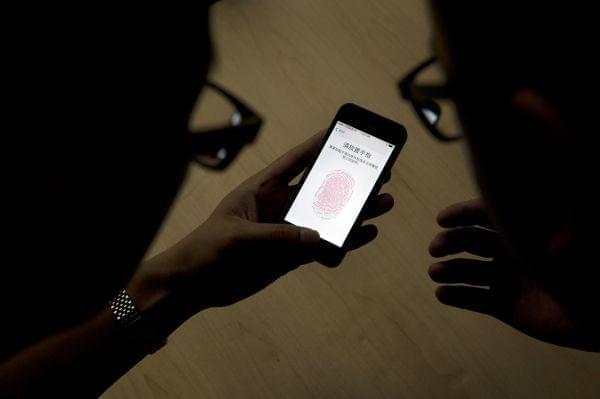Biometric Data Lawsuit Reaches IL Supreme Court; Electronic Monitoring Devices; HPV Vaccines

Ng Han Guan/AP
On the 21st: A recent court case might shake up our state's law on biometric information. Plus, are electronic monitoring devices a valid alternative to overcrowded jails, or do they do more harm than good? And, the HPV Vaccine is most effective when given to preteens — so why are some parents still hesitant?
If you’ve visited any amusement parks this summer you’ll know admission prices can be pretty stiff. But that’s not the only cost - you might also be giving away some biometric information - like fingerprints and facial recognition.
That’s what happened when a child from Lake County bought a season pass to Six Flags Great America in Gurnee, and the park allegedly captured fingerprint information without written consent. In response the child’s mother sued - and now that case, Rosenbach versus Six Flags, is before the Illinois Supreme Court.
That case could affect a state law that’s considered one of the most protective — or restrictive — in the country. It’s called the Biometric Information Privacy Act or BIPA, which bans companies from using biometrics without user consent.
Rebecca Glenberg is the Senior Staff Counsel at the the ACLU, one of the groups asking the state Supreme Court to reverse the appeals court decision. She was on the line with us from Chicago. Also on the line with was Jay Kesan, a Professor in the Colleges of Law and Engineering at the University of Illinois.
Illinois' BIPA law is "pretty stringent," explains @JayPKesan of @UIllinoisLaw. It also allows for private action like the lawsuit the Rosenbachs filed against Six Flags. #Biometrics.
— The 21st (@21stShow) July 17, 2018
Plus—
Over the last decade or so, law enforcement agencies have turned to electronic monitoring devices as an alternative to overcrowded jails - and a bail system that punishes lower-income people. You’re probably familiar with one of the most common forms of electronic monitoring -- ankle bracelets that can track a person’s location through radio or GPS.
A Pew study found that the number of active devices in the US more than doubled between 2005 and 2015. So as these devices are being used more and more throughout Illinois and the country, what do we need to know about how they work?
We heard from Sharlyn Grace, co-executive director of the Chicago Community Bond Fund, and Cara Smith, chief policy officer of the Cook County Sheriff’s Office.
It's important for people to understand that people under electronic monitoring are "expreriencing some of the same harms as in jails."
— The 21st (@21stShow) July 17, 2018
- @SharlynDGrace of @ChiBondFund
And—
When given to pre-teens, the HPV vaccine can prevent 90 percent of related-cancers. So why are only half of teenage girls up-to-date on HPV vaccines?
Gardasil made headlines back in 2016 with an ad campaign that asked the same question. If we know HPV related cancers are largely preventable, why are parents still hesitant to vaccinate their sons and daughters against it?
The American Cancer Society is back with a public service campaign called HPV Cancer Free that they hope will be a bit less provocative.
On the line with us now was Tarneka Manning. Tarneka is the Senior Manager of Primary Care Systems for the American Cancer Society. We were also joined by Dr. Doug Carlson, who is chair of SIU Medicine’s Department of Pediatrics
"We just get back to the idea that nearly 20,000 people a year die from what is preventable illness."
— The 21st (@21stShow) July 17, 2018
- Dr. Doug Carlson of @siusom on talking to parents about the #HPV vaccine#HPVcancerfree
